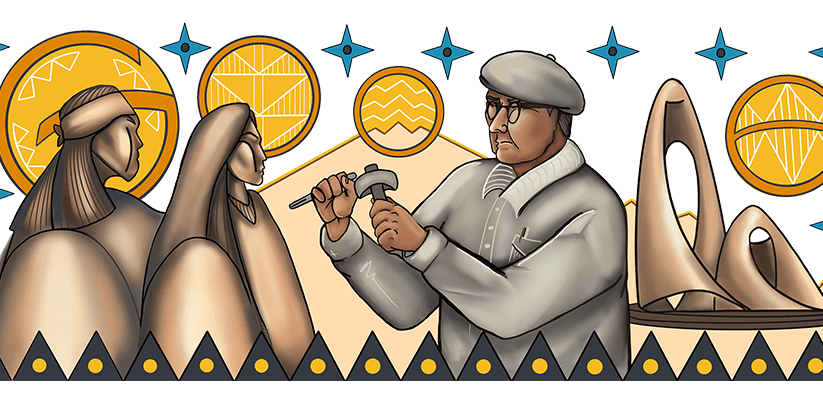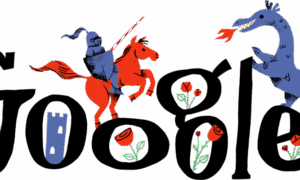Today’s Doodle honours renowned Chiricahua Apache sculptor, painter, and book illustrator Allan Haozous (Houser) in celebration of Native American Heritage Month. Today’s artwork was created by Lynnette Haozous of Albuquerque. It shows Haozous in her environment, sculpting an Apache man and woman. His sculpture The Future made its debut at the Autry Museum of the American West on this day in 2012.
In Apache, Oklahoma, on June 30, 1914, Haozous was born to parents who had endured the anguish of being detained as political prisoners for 27 years because of their tribal ties. Haozous was born shortly after their release and raised on a farm, where his father gave him songs and stories about his culture. He relocated to New Mexico at the age of 20, where he enrolled at the Santa Fe Indian School of painting.
Commissions began to come in as soon as Haozous’ talent was recognised. His murals for the New York World’s Fair, the Golden Gate Exposition, and the Department of the Interior in Washington, D.C., were completed in 1939. To establish a memorial honouring the Native American soldiers who lost their lives in World War I, the Haskell Institute commissioned Haozous. Haozous’s first marble sculpture was this one, Comrade in Mourning (1948). After being awarded the Guggenheim Fellowship for painting and sculpture the next year, he was able to devote more time to his work.
From 1951 until 1975, Haozous established the sculpture section at the Institute of American Indian Arts in Santa Fe and taught the next generation of Native artists at the Inter-Mountain Indian School in Utah. He showed his versatility as an artist during this period by producing hundreds of paintings, illustrating multiple children’s books, and creating hundreds out of steel, stone, and bronze.
In 1975, Haozous resigned from his position as a teacher and created about a thousand sculptures in a variety of media that were well regarded throughout the world. He was the main performer at the 2002 Winter Olympics held in Utah and was inducted into the Oklahoma Hall of Fame in 1985. Being the first Native American to win the National Medal of Arts, he was honoured with other accolades for his artistic achievements during his career.
Haozous’s artwork is now well appreciated and can be found in various locations, such as Santa Fe, Vancouver, London, Paris, Tokyo, and a few museums in Washington, D.C., such as the Smithsonian Museum of American Art.
- Google Messages Adds Two Powerful New Features for Android Users - April 23, 2025
- Google Fi Launches Budget-Friendly Unlimited Plan at $35 - April 23, 2025
- Who’s No. 1? Men’s Freestyle Seeds for 2025 US Open Wrestling Championships - April 23, 2025





